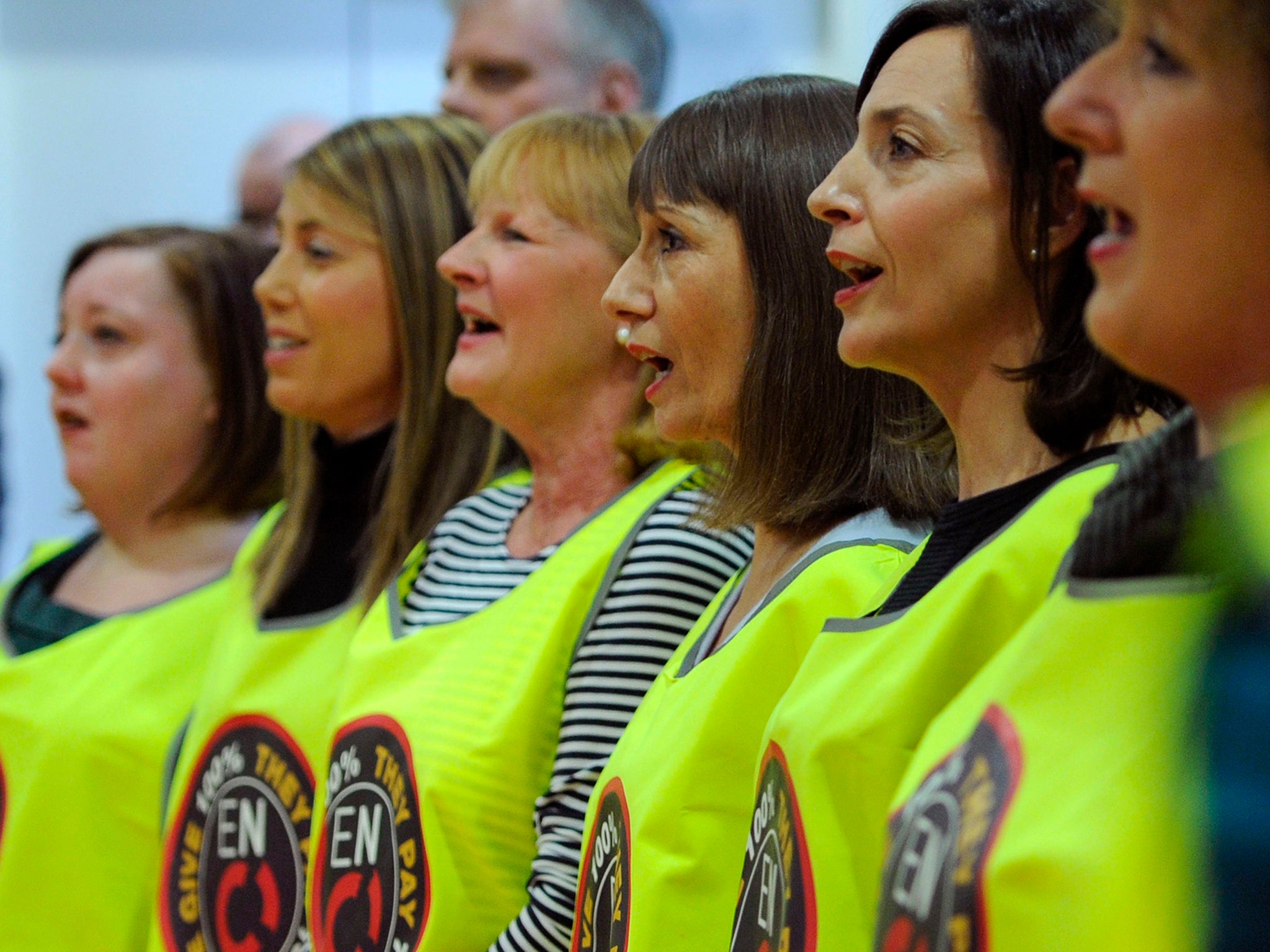English National Opera chorus to conduct silent protest during performance of Philip Glass’s Akhnaten over contract dispute
Officials from Equity vote unanimously to strike after failing to agree new terms with ENO management

Your support helps us to tell the story
From reproductive rights to climate change to Big Tech, The Independent is on the ground when the story is developing. Whether it's investigating the financials of Elon Musk's pro-Trump PAC or producing our latest documentary, 'The A Word', which shines a light on the American women fighting for reproductive rights, we know how important it is to parse out the facts from the messaging.
At such a critical moment in US history, we need reporters on the ground. Your donation allows us to keep sending journalists to speak to both sides of the story.
The Independent is trusted by Americans across the entire political spectrum. And unlike many other quality news outlets, we choose not to lock Americans out of our reporting and analysis with paywalls. We believe quality journalism should be available to everyone, paid for by those who can afford it.
Your support makes all the difference.The chorus of the English National Opera will fall quiet during the last performance of Philip Glass’s Akhnaten next month after singers backed unprecedented industrial action in a protest against plans to change their contracts.
Officials from Equity, the trade union for those working in the arts, have announced that the chorus, which currently has 43 members, had voted unanimously to strike after failing to agree new terms with ENO management.
The announcement was made in front of Arts Council England’s headquarters in central London. Subsequently, a delegation of chorus members delivered a letter to the Arts Council, calling on the funding body to step in and prevent the “cultural vandalism” at the ENO.
Members of the chorus, some of whom have been at the ENO for more than three decades, said they felt “hugely isolated” from the management. “It’s incredibly emotional for us, but we’re sticking together. I hope they will listen to us,” one member told The Independent. “We are fighting as hard as we can. We love our jobs and ENO, so we’re doing what we can. But it’s becoming increasingly difficult and we won’t be exploited.”
ENO’s plan was to make several members of the chorus redundant and cut the salary of those who remain to 75 per cent of the current level, with a longer working week for no extra pay. Management also wanted to put the singers on nine-month contracts rather than for the full year.
If no resolution can be found in the next three weeks, the chorus will refuse to sing in Act One on the last night of Akhnaten on 18 March. They will perform during the rest of the show.
Hilary Hadley, Equity negotiator, said: “The chorus have no interest in causing economic harm to their own company. The impact of the current proposals on the chorus are so great they have reluctantly had to consider strike action. They have chosen to make it as minimal as possible.”
Other actions short of a strike could include refusing to sing in a rehearsal or take part in a costume rehearsal. These actions will take place from 4 to 19 March.
The ENO said it was “extremely disappointed” by the strike announcement. It said the decision to disrupt Akhnaten “will only undermine the pride the whole company has in its amazing work and let down every audience member who has paid to see the show”.
The ENO is investigating ways to deal with the chorus falling silent during the performance, although declined to reveal details at this stage.
One source close to the company said: “We could simply perform as usual without the chorus, we’d still have principal singers, actors and jugglers… but we’re aware of the significantly negative impact that this would have on the performance as the chorus play a major part in the first act.”
After the chorus sang on the steps of the Arts Council’s offices in central London, Equity delivered the letter to the organisation’s chief executive Darren Henley, requesting a meeting about the way ENO management is seeking to restructure the business.
Malcolm Sinclair, president of Equity, said: “The main dispute is with the English National Opera company itself. Not only are they damaging the livelihood of our members, but they are damaging the artistic integrity of the company, perhaps irreparably.”
ENO has suffered a string of setbacks, most significantly when the Arts Council removed it from the national portfolio of companies it funds, resulting in a £5m cut in core funding.
Join our commenting forum
Join thought-provoking conversations, follow other Independent readers and see their replies
Comments